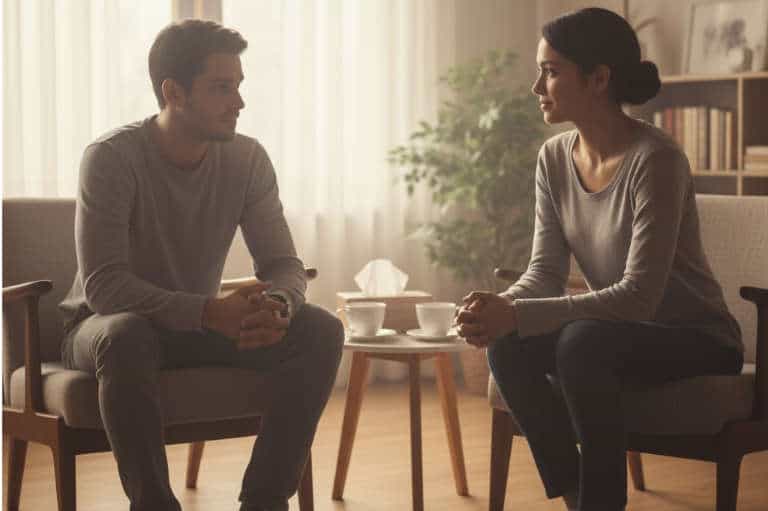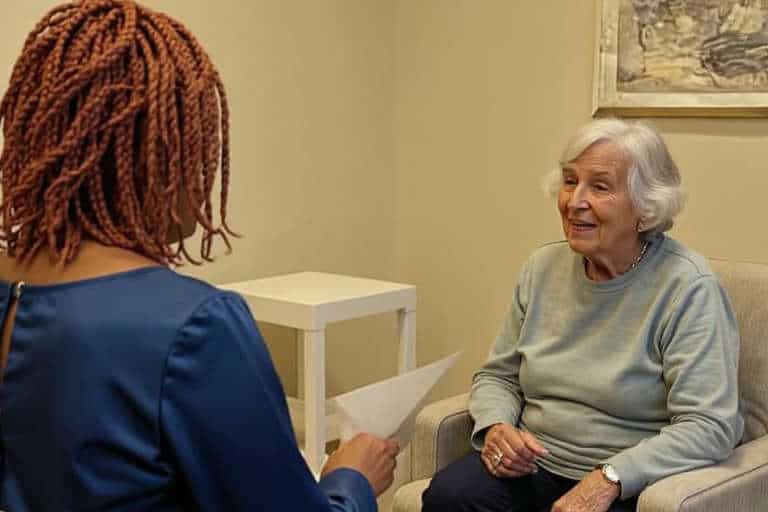Relationship Therapy
Relationships sit at the centre of our emotional life. They shape how safe we feel, how we see ourselves, and how we connect to the world. When patterns become tense or confusing, relationship therapy offers a calm, structured space to understand what is happening and to rebuild connection with honesty and care. This work looks beyond arguments to the emotions and expectations that live underneath, so change can happen at a deeper level that lasts.
In relationship therapy the focus includes what each person brings from earlier life, the beliefs and protections that once made sense but now create distance. By slowing the pace, naming what hurts, and learning to listen for meaning rather than defence, people begin to relate in ways that feel safer, kinder, and more authentic.

“Connection doesn’t come from being perfect, it comes from being present enough to truly see and be seen.”
Family Dynamics and Conflict Resolution
Families shape our first ideas about love, loyalty, and safety. Those early scripts can turn into repeating roles, like peacekeeper, fixer, or the one who carries everyone else’s feelings. Family therapy within relationship therapy helps you see these patterns clearly and with compassion. It is not about blame, it is about understanding how each person learned to cope, then creating room for new ways of relating that honour everyone’s needs.
Together we practise steady communication, clear requests, and boundaries that reduce reactivity. Over time the tone at home shifts from tension and misunderstanding toward empathy, accountability, and emotional safety.
Couples and Marital Stress
When closeness fades or arguments loop, it can feel like you are living beside each other rather than with each other. Couples counselling inside relationship therapy slows the cycle so both voices can be heard. Often the real question under the conflict is simple and human, do you see me, do I matter, can I trust you with my feelings.
In couples counselling you learn to separate trigger from intention, to speak to the feeling rather than the defence, and to ask for what you need without blame. Trust is rebuilt through small, consistent moments of presence and care. Whether you are repairing after a rupture or deciding a future with clarity and respect, relationship therapy helps both partners move forward with more understanding, steadiness, and choice.
Parenting Challenges and Reset
Parenting brings love and responsibility, and it can also stir old wounds. You may notice yourself reacting in ways you promised you would not, or feeling torn between cultural expectations and what feels right for your family. Relationship therapy offers space to understand your triggers, to regulate in the moment, and to communicate with calm, consistent authority that is rooted in care.
Using principles from family therapy, we focus on relationship before correction, on connection that makes guidance easier, and on routines and boundaries that support every member of the family. The aim is not perfection, the aim is presence and repair.
Evidence and Research
Emotionally Focused Therapy meets criteria for evidence based couple therapy, with strong outcome and process research supporting improvements in attachment security and relationship satisfaction. Family Process review
Meta analytic findings indicate substantial recovery rates for distressed couples and show that therapist fidelity to the EFT model predicts stronger results. Comprehensive meta analysis
Depth of emotional experiencing during key change events predicts relationship recovery, highlighting the value of process focused work. Change events study
UK trials within NHS services show benefits of manualised family therapy for adolescents, including those who have self harmed, when compared with usual care. NHS CAMHS RCT Community effectiveness study
Recent reviews confirm positive outcomes for adults and children across diverse family presentations, with systemic approaches offering unique benefits for youth emotional and behavioural difficulties. Systemic therapy review Comparative outcomes paper
Boundaries and People Pleasing Recovery
If saying yes keeps you safe or keeps the peace, saying no can feel risky. Relationship therapy helps you trace this back with care, so guilt can soften and self respect can grow. You will practise clear communication, compassionate limits, and the tolerance to let others hold their feelings without rescuing or over giving.
Healthy boundaries make relationships more genuine. People connect not because you manage their emotions, but because you show up as your real self with warmth and honesty.
“Boundaries are not walls, they are the pathways where respect and love can finally meet.”
Loneliness and Rebuilding Social Connection
Loneliness can persist even when life looks full from the outside. Often there is a protective habit of staying hidden, a belief that closeness will end in disappointment. Relationship therapy explores this emotional disconnection with gentleness. As you rebuild connection with yourself, trust returns, and reaching out begins to feel safer and more natural.
From that steadier base, friendships deepen and intimacy becomes possible again, not through performance, but through being seen as you are.
Frequently Asked Questions
Sessions slow the pace so feelings can be heard without defence. We map the pattern, identify triggers, and practise new ways to speak and listen. The focus is on safety, on expressing needs clearly, and on building moments of connection that repair trust. Over time you replace blame and withdrawal with curiosity and collaboration.
Yes. When one person changes, the system around them adjusts. By learning to regulate, to set clear boundaries, and to communicate needs steadily, you shift the emotional climate. Others often respond differently when the pattern changes, which can create new possibilities for repair and closeness.
Some couples feel relief within a few sessions once safety and understanding return. Longer standing patterns, trust injuries, or high conflict may take more time. Progress is measured less by the absence of disagreement and more by how safely it is handled and how quickly you can repair.
Therapy supports clarity, respect, and care wherever you land. Some couples reconnect and rebuild. Others choose to separate with understanding and a kinder path forward. Both outcomes are valid. The work is to reduce harm, increase honesty, and support growth for everyone involved.
General counselling focuses on the individual. Relationship therapy focuses on the pattern between people, on attachment, communication, and the way emotions move through the system. By working with the dance rather than a single dancer, change becomes more relevant and more durable at home.
Moving Forward
Whether you are addressing family tension, facing a crossroad in your marriage, or looking to feel closer and more secure with others, relationship therapy offers a respectful path forward. With time and practice you can speak more honestly, set boundaries with confidence, and grow the kind of connection that feels safe and sustaining.
Ready to Begin Relationship Therapy
You do not have to face these challenges alone. Sessions are available in person or online. If you would like to talk about what is happening and explore the right support for you, please get in touch today.

